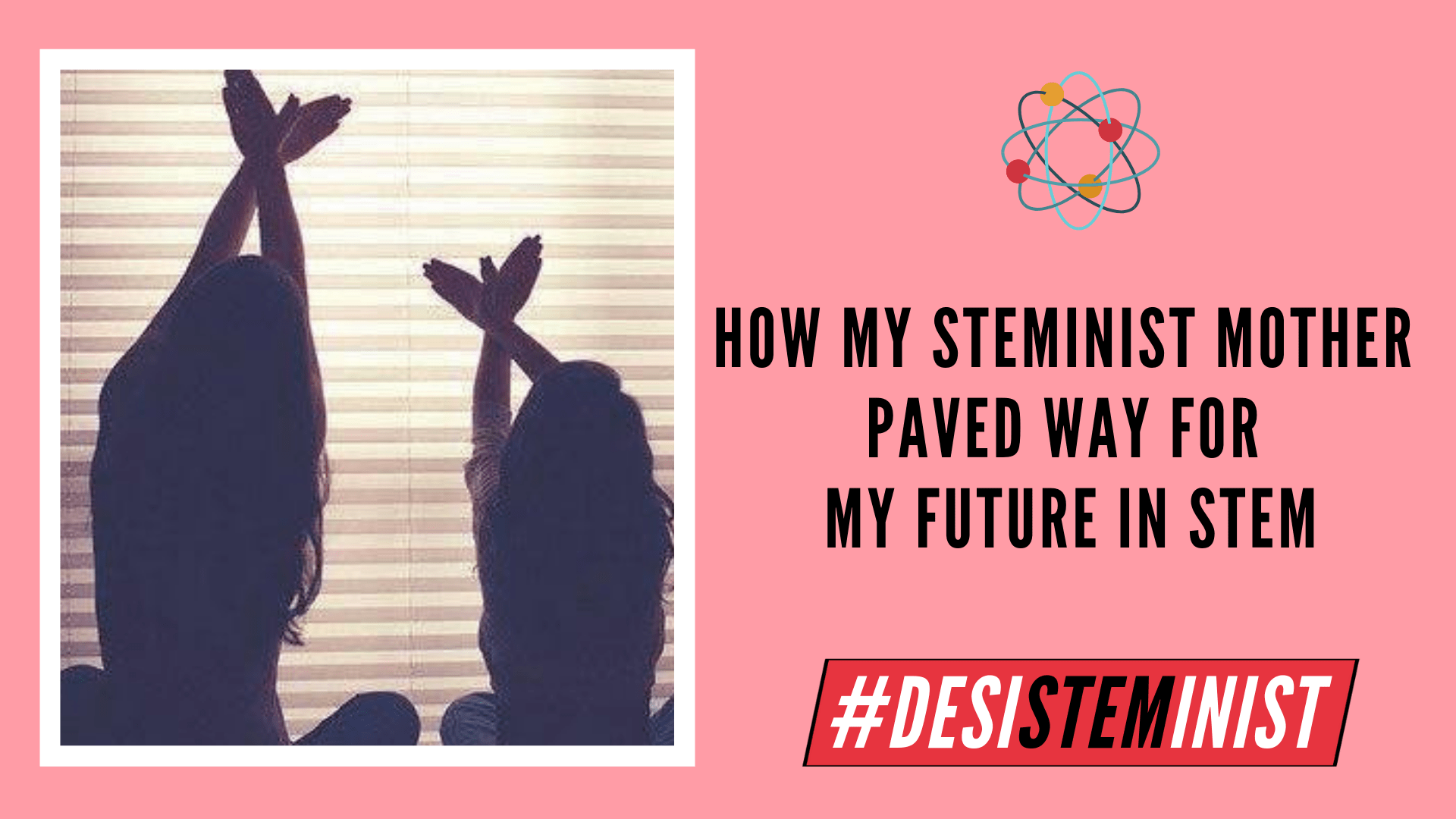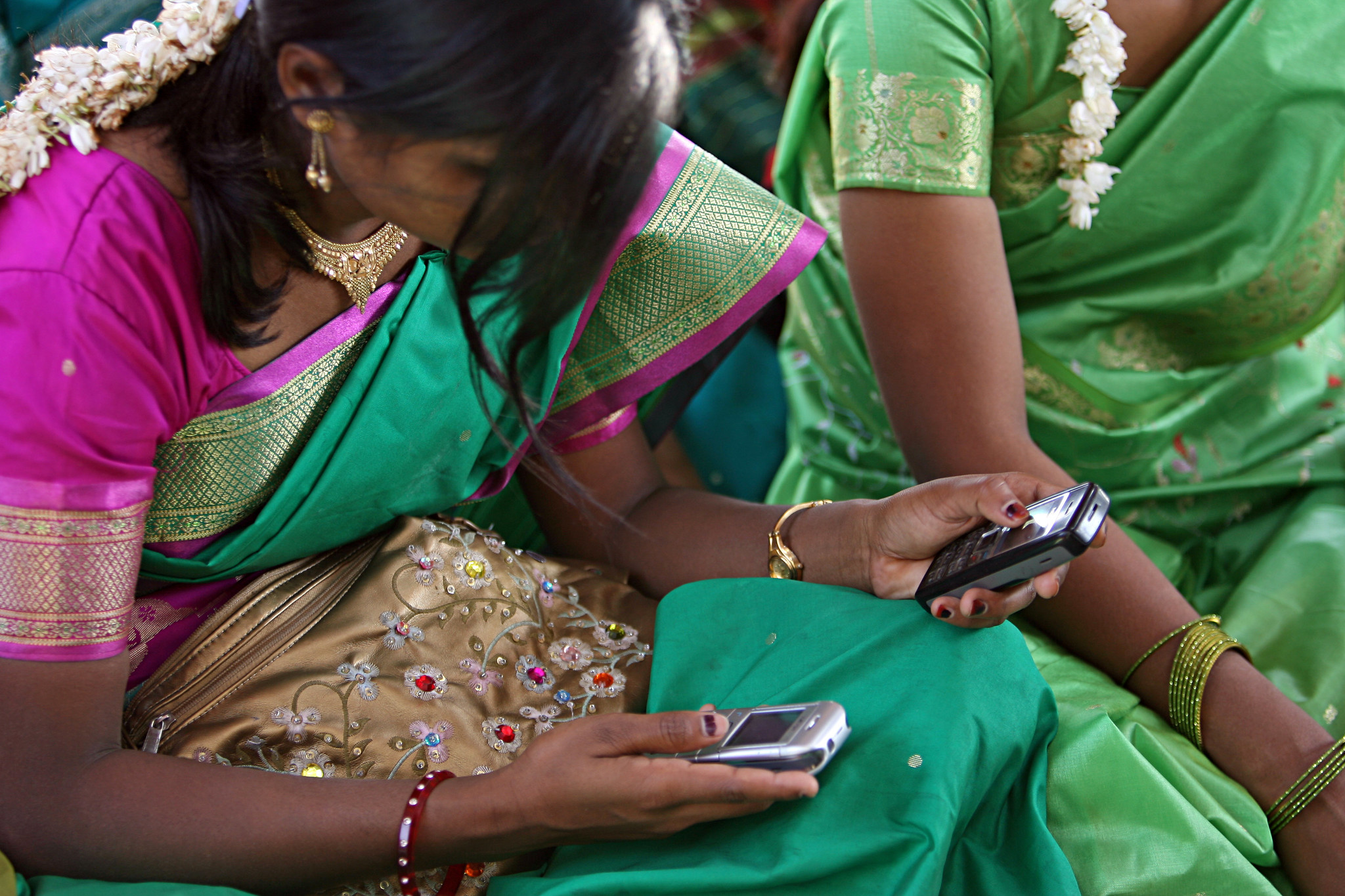Editor’s note: #DesiSTEMinist is a campaign to celebrate women in the field of STEM and highlight their contributions.
Posted by Shruti K
“Choose your battles.”
That’s the advice I got from my mother, in some form or another, throughout my life. Fight less, don’t let your dissatisfaction show. Don’t argue with them when they tell you not to do something – just stay quiet, and then go do it anyway.
I often have difficulty reconciling this mother of mine with the person my mother is. My mother was in her forties when she had me, her second daughter. She tells me she was convinced I was going to be a boy, because “no girl could give me so much trouble during pregnancy”, and that she wasn’t too sold on the idea of a second child. Prior to getting pregnant with me, she was thinking of getting a dog instead.
Before she was my mother, she was a master’s degree holder in information sciences, part of that generation that established ‘computer science’ as it exists today, that went to school before the concept of computer science existed, and whose workday highlight was visiting the ‘Computer Room’ to get calculations done for data stored on massive magnetic tapes, because that was the only air-conditioned room in the building.
Born in the fifties, she was convinced through her school years that she would one day win the Nobel Prize in mathematics for solving Fermat’s Last Theorem. She grew up in a conservative upper caste household, but managed to talk them into allowing her to pursue a bachelor’s degree in electrical engineering under the condition that she would get married immediately afterwards.
She has often recounted her family’s reaction to her declaring that she would pursue engineering – it ranged from her cousin explaining to her that she meant “B.A, not B.E. E stands for engineering,” to her grandfather, a professor of physics, immediately launching into an ‘outrage’ rant over how women could not possibly carry theodolites and run for miles in the hot sun (as was apparently required of every engineer).
When my mother started her course in electronics and communication engineering at CEG in Chennai, she was one of four girls in her class of sixty, which meant instant notoriety.
She graduated without ever setting eyes on a theodolite, and I – an engineering graduate – still don’t fully understand what a theodolite is.
My mother is now in her sixties, a company manager with grey hair and large glasses that give her the look of an inquisitive owl. In the evenings, we sometimes sit and discuss how our respective days went. I am pursuing my master’s degree in engineering while also working, and either because a male-dominated atmosphere is inherently stressful, or because I have a rather abrasive personality, the conversation invariably turns to me complaining about work. My mother listens to everything I say very
Statements like these always cause me to demand what other emotion I am supposed to experience, after which she pats me on the head kindly and goes back to reading her Tamil novels.
When my mother started her course in electronics and communication engineering at CEG in Chennai, she was one of four girls in her class of sixty, which meant instant notoriety. Their names would be called by random strangers as they walked through campus, all their professors knew them by name, and a deep-seated hatred of engineering college boys was easy to develop.
In any other world, those four girls might not have been acquaintances, let alone friends, but in the way that negative experiences bind people together, they grew close, and remain in touch even to this day. It seems that there is something about that fire in one’s stomach when getting berated by a professor over how you’ve stolen a seat from a ‘deserving boy’ that forges lifelong friendships.
Also read: Meet Shubhanshi Gaudani: The Robotics Champion| #DesiSTEMinist
After graduating, and facing the initial disappointment of having to choose between following her dreams or being able to feed herself, she talked her parents into letting her work for two years, after which she would consider marriage. I don’t know if she had any intention of keeping this promise, but two years turned to four and four years turned to six, until finally, my grandmother enlisted her sister’s help.
College made me wary of a system that I quickly realised wasn’t always built to favour me, but I’ve never been accused of ‘stealing’ a seat by a professor.
“Talk to her,” my mother’s aunt quotes her as saying, “Make her see sense.”
In my mother’s aunt’s words, she marched to my mother’s room with purpose, ready to convince her that marriage was the only good option, and two hours later, marched back out, convinced that every marriage was a mistake.
My mother shrugged when I asked her about that story.
“I don’t remember that so well,” she said.
Knowing this about my mother, I once asked her why she decided to have children.
“I wanted to give birth,” she sighs, “It seemed irresponsible to do that without having plans for childcare on the other side.”
I’m not sure she knew what I really meant.
I went to an engineering college, where about twenty
I know that a lot of people, even those of equivalent socio-economic status, don’t get to say the same.
I am still angry.
Now, my mother tells me that my anger is not worth the destruction it causes, and I’m not sure I believe her. Because sometimes, just for a moment, when reading the newspaper, or hearing an out of line comment, that inquisitive owl is replaced by a tiger with a fire in its eyes that I recognise from the mirror. That’s when I realise why my world is the way that it is. Because the true winners of the battles we choose are those that weren’t even in the room when it happened.
I remember the orientation on my first day of engineering school. My mother had come to drop me off and get me settled. I had never felt more acutely aware of the choices that my mother, and many others like her, made – choices that I would not have made – that led to me being here, and how it was both a burden and a privilege to walk along the road they paved.
Also read: A. Mani Lays Down How To Fight Sexism And Queerphobia In STEM | #DesiSTEMinist
“Your cleavage is showing,” My mother remarked, helpfully pulling up my shirt and bringing me back to reality, “you must make a good impression.”
I opened my mouth, ready to argue about the lack of relation between cleavage and character, and then closed it again.
I took her advice, and chose to fight that battle another day.
Shruti K is a full-time engineer, who enjoys writing in her free
About the author(s)
Guest Writers are writers who occasionally write on FII.





Beautiful and heart warming to read ❤❤
Love this story! So heartwarming and inspiring at the same time